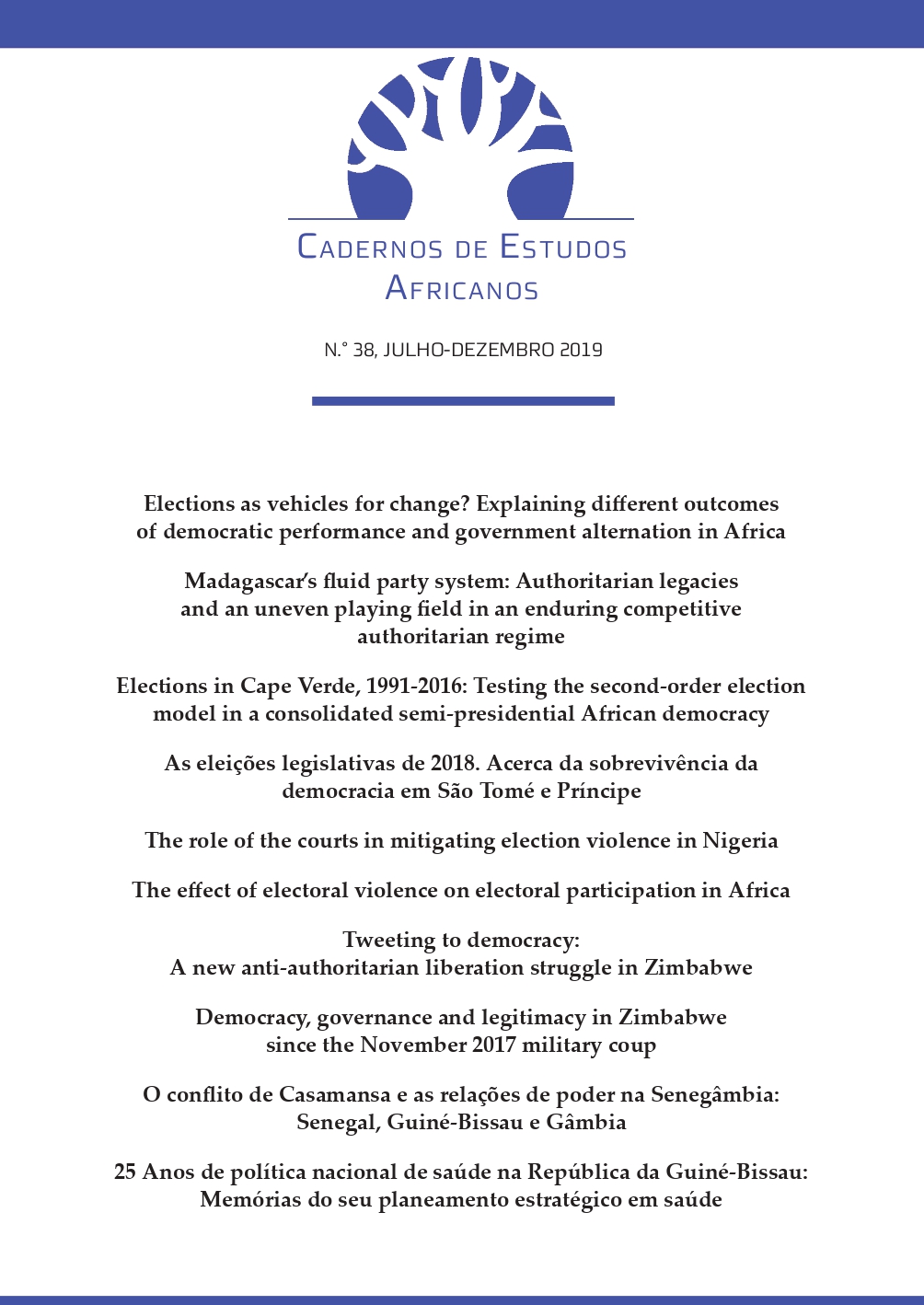Introduction
DOI:
https://doi.org/10.4000/cea.4224Resumo
Some thirty years ago, Benin’s Conférence des Forces Vives de la Nation paved the way for the end of Mathieu Kérékou rule and inaugurated a new democratic order in country (Banégas, 1995; Bratton & van de Walle, 1997). The successful transition in Benin pioneered the wave of democratisation in Africa and the demise of formal one-party rule in most countries. In the backcloth of domestic and international pressures, incumbent authoritarian parties embarked in significant liberalisation reforms, from the early 1990s-on, leading up to landmark constitutional revisions, and the introduction of laws allowing the formation of political parties, and the realisation of multiparty elections, for the first time ever or in decades. By mid-1990s virtually all countries had organised a round of competitive multiparty elections (Bratton, 1998; Bratton & van de Walle, 1997).
Ficheiros Adicionais
Publicado
Edição
Secção
Licença

Este trabalho encontra-se publicado com a Licença Internacional Creative Commons Atribuição-NãoComercial-CompartilhaIgual 4.0.
Autorizo a publicação do artigo/recensão submetido do qual sou autor.
Declaro ainda que o presente artigo é original, que não foi objecto de qualquer tipo de publicação, e cedo em exclusivo os direitos de publicação à revista Cadernos de Estudos Africanos. A reprodução do artigo, no todo ou em parte, noutras publicações ou noutros suportes depende de autorização prévia da editora Centro de Estudos Internacionais do Iscte - Instituto Universitário de Lisboa.

